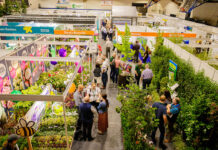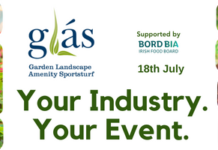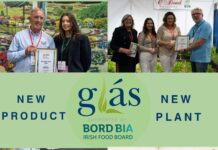ORGANIC FARMERS are younger, more likely to be married, have off-farm income coming into the home and make more money than conventional farmers if they are involved in cattle farming, the National Organic Conference has been told.
Teagasc organic specialist Dan Clavin told the conference in Ballykisteen, Co Tipperary, recently that organic cattle farmers had achieved a 30 per cent higher farm family income per hectare last year than conventional farmers.
“On organic cattle farms, the figure was €349 per hectare compared with €268 per hectare and this was due to significantly lower costs of production on organic cattle farms.”
Figures extracted from the most recent Teagasc Farm Income survey showed family farm income on organic cattle farms was €19,282 and €8,499 on conventional farms. He said 86 per cent of organic cattle farms were considered to be economically viable or sustainable, compared to 59 per cent of conventional cattle farms, according to Teagasc studies.
Mr Clavin said there had been a change in the profile of organic farmers down the years and the sector was now attracting younger, forward-looking people who had sometimes lived abroad and were prepared to make changes for financial reasons.
The data on cattle farms showed organic farmers to have an average age of 50 while conventional cattle farmers were 56; 86 per cent were married compared to 68 per cent of conventional cattle farmers and 67 per cent had off-farm income from a spouse compared to 30 per cent of conventional farmers.
While Ireland has relatively few organic farmers and only 1.2 per cent of agricultural land is organically farmed, the number of organic farms has risen from 300 in 1995 to 1,392 last year, farming 52,380 hectares.
Most organic production is located in the west and southwest with more than two-thirds of producers in Connacht and Munster.
Lorcan Bourke, a Bord Bia analyst, said the growth of the organic market had not been too seriously hit by the recession and consumers were prepared to pay premium prices for quality food.
However, Bord Bia research last year had shown price remained a key issue for the majority of consumers and organic farming needed to position itself as a relevant food choice for all shoppers, not for an elite who could afford it. It also needed to dissociate itself from the “high status” Celtic Tiger/luxury imagery.
Over the past 12 months, Mr Bourke said, organic sales of yoghurt and fresh meat had increased but poultry sales had declined. He believed people were substituting free-range eggs for organic eggs.
Food exporting companies should look for Irish organic lines to sell abroad, especially in the continental markets where Irish food had a clean, green, safe image which fitted perfectly into the organic profile, he added.
Prof Nic Lampkin, executive director of the Organic Research Centre in Britain, told delegates organic farming would have a bright future because of the “greening” of the Common Agricultural Policy (Cap).
This would bring higher direct payments for organic farmers as had been indicated in recent weeks during the run-up to Cap reform negotiations. Prof Lampkin also predicted a recovery in demand for organic food as economies stabilised.
Source: Irish Times – Price Still Factor for Organic Produce







